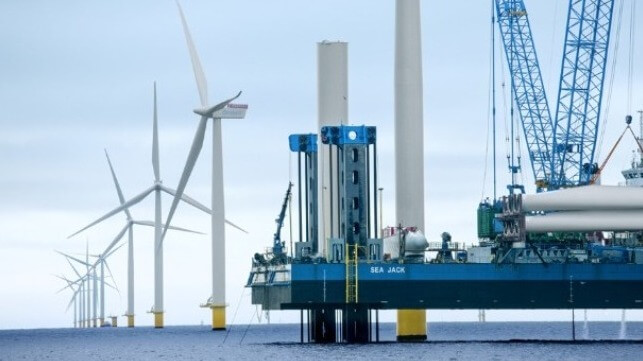Orsted, WWF Join Forces to Address Offshore Wind's Biodiversity Impact

Offshore wind developer Orsted wants to zero out the biodiversity impact of its installations by 2030, and it is partnering with the World Wildlife Fund to look for ways to do it - starting with ecosystem rehabilitation in the North Sea.
According to the IUCN, there are five main negative biodiversity impacts associated with offshore wind farms: bird strikes; species displacement from disturbances, including noise; barriers to movement, including noise; habitat loss, generally minor and limited to sedimentation from construction; and indirect effects on the ecosystem.
There are also positive biodiversity impacts associated with offshore wind development. Individual turbine foundations can act as artificial reefs, just like offshore oil and gas platforms, sheltering fish and other species. Wind farms also create marine reserve areas by physically blocking commercial fishing, and studies suggest that they "can be at least as effective" as marine protected areas in creating a refuge for aquatic life, according to IUCN.
Orsted says that it wants to make sure that the biodiversity positives outweigh the negatives when it installs a wind farm, and it wants to get there by 2030 at the latest. The company says that it will minimize known impacts during installation by improving its project designs, selecting sustainable materials, and setting up monitoring systems to protect endangered species (like the North Atlantic right whale) from its operations. In addition, it will invest in projects to improve marine biodiversity, starting with a restoration project in the North Sea.
The first effort in its five-year partnership with WWF will focus on methods of building up populations of the North Sea's depleted reef-building species, the European flat oyster (Ostrea edulis) and horse mussel (Modiolus modiolus). These species build biogenic reefs as they grow, creating habitat for other creatures.

that matters most
Get the latest maritime news delivered to your inbox daily.
Beyond research, the partnership also has policy goals. This includes advocating for nature protection and restoration to be incorporated into national governments' offshore wind tenders. The partners will develop science-based recommendations on how to bring biodiversity considerations into the planning and leasing process.
"Addressing climate change and biodiversity loss together allows for a much-needed shift in the way governments, NGOs, and businesses work to solve these interrelated crises. Solutions must complement one another, not come at the expense of each other," said Mads Nipper, the group president and CEO of Orsted. "If done in the right way, offshore wind projects can enhance ocean biodiversity, improving ocean health, and thereby address both the climate and biodiversity crises."
